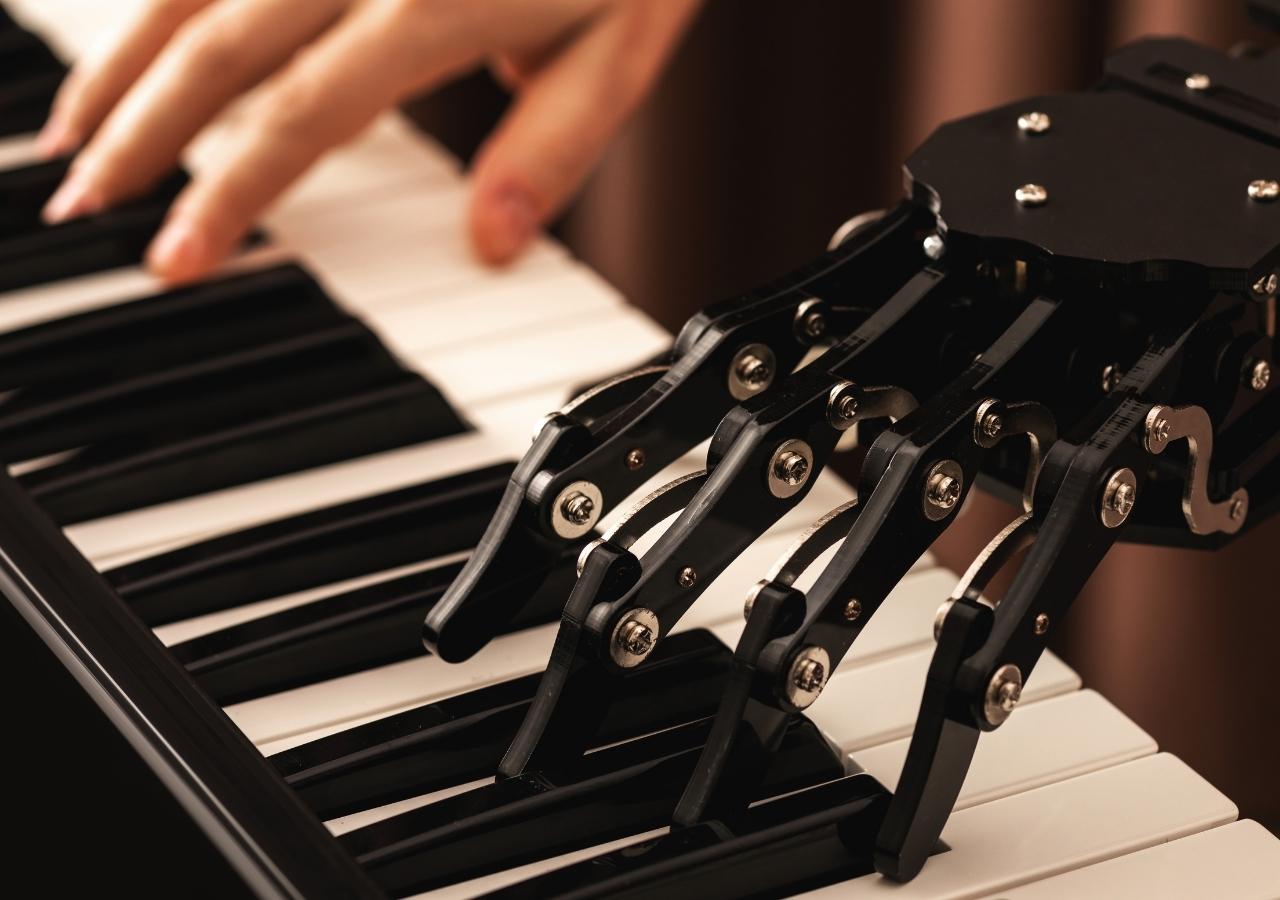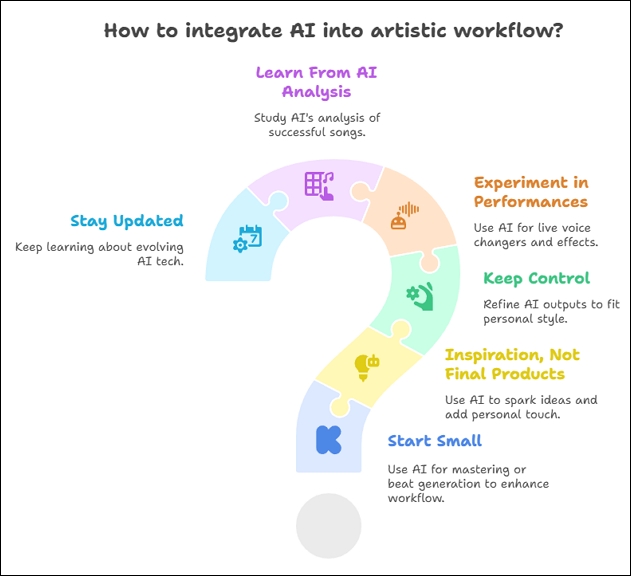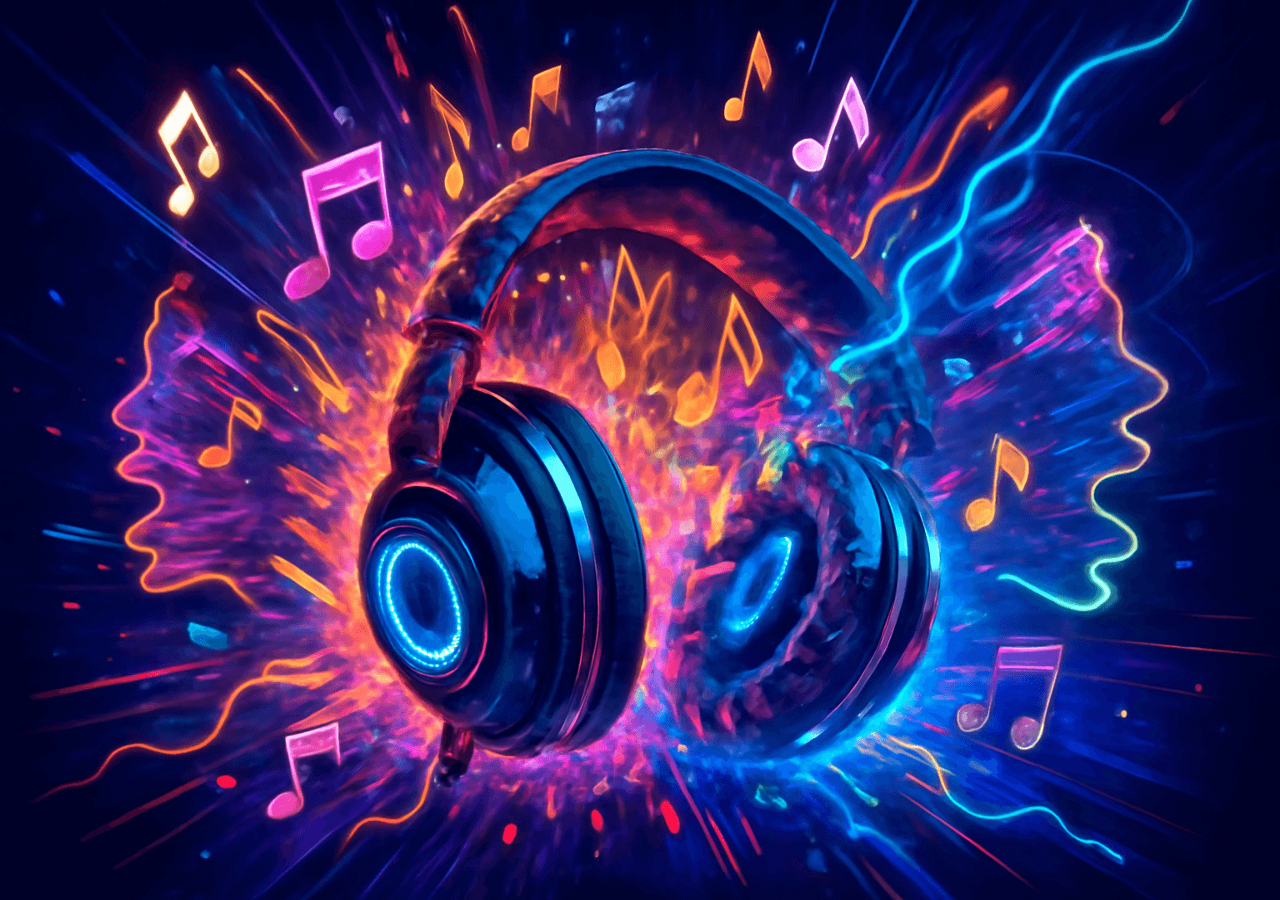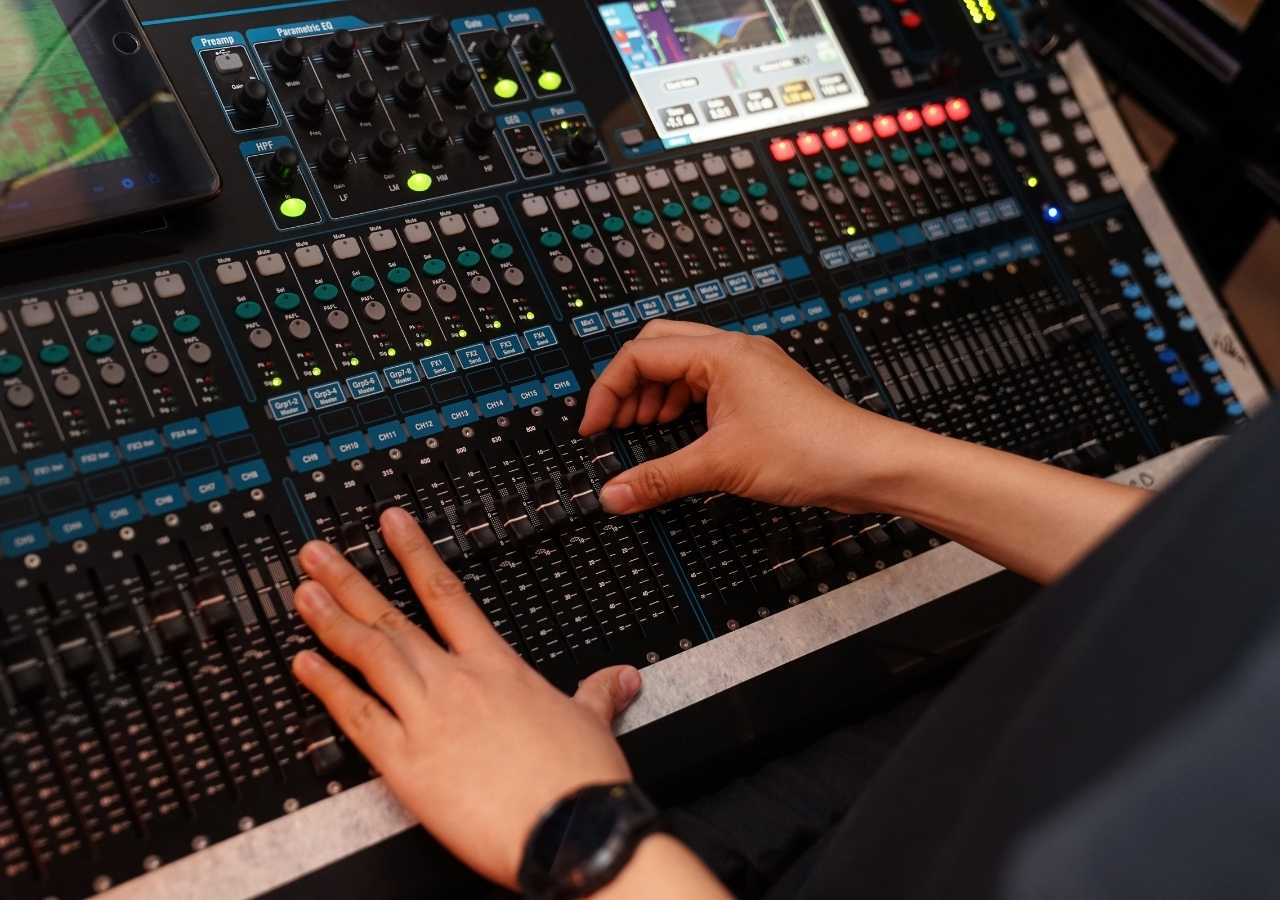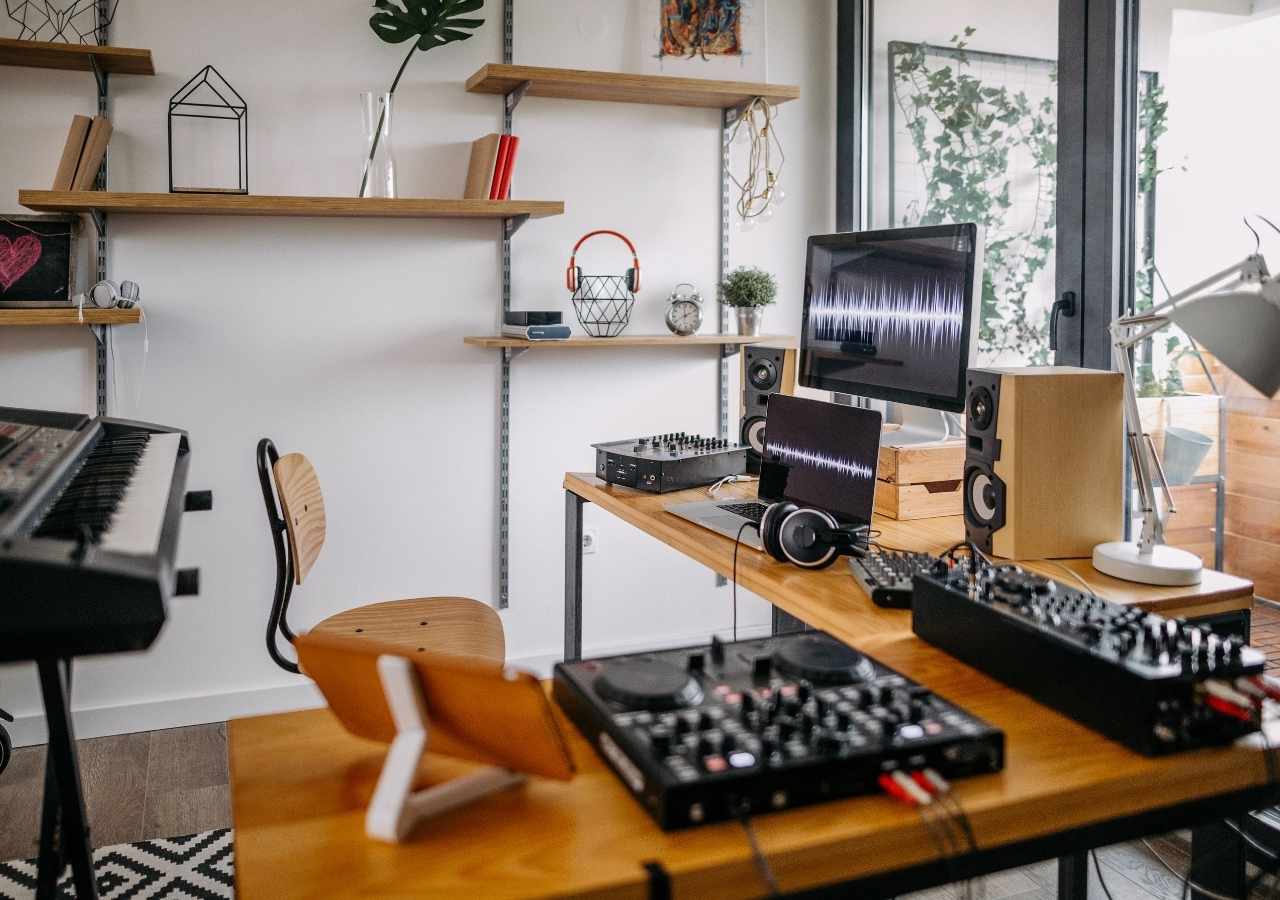The music industry is facing a huge transformation. Artificial intelligence (AI) is no longer just a buzzword—it's already shaping how songs are written, produced, and even performed.
But here's the big question: Is AI helping musicians express themselves more fully, or is it threatening the heart of true artistry?
Some artists see AI as a valuable partner, while others view it as a dangerous rival. The truth is, it's both a boon and a challenge—and how we use it will determine the future of music.
How AI Is Transforming the Music Industry?
AI isn't just a futuristic concept—it's already working behind the scenes in multiple parts of the music world:
🎼 1. Songwriting and Composition
- AI programs like AIVA and Amper Music can generate melodies, harmonies, and chord progressions in minutes.
- These tools analyze massive music libraries to create "original" pieces.
- They're not perfect, but they're great for sparking ideas when inspiration runs dry.
Takeaway: AI can kickstart creativity, but the human touch still shapes the final song.
🎚️ 2. Music Production and Mastering
- Platforms like LANDR and eMastered automatically adjust EQ, levels, and compression.
- Producers without expensive gear can now get studio-quality results from their laptops.
- What once cost thousands is now accessible for a fraction of the price.
Takeaway: AI has democratized music production, making pro-level sound available to anyone.🎤 3. Real-Time Performance Enhancements
- Voice changers, auto-harmonizers, and live processors let singers experiment on stage.
- Musicians can shift vocal tones, add effects, or even create new timbres instantly.
- This technology expands what's possible in live shows and recordings.
Takeaway: Live performances are evolving—AI gives artists more creative control in real time.
🎧 4. Music Discovery and Audience Reach
- Streaming platforms like Spotify and Apple Music use AI to recommend songs.
- Personalized playlists are now one of the main ways listeners discover new artists.
- For musicians, this means more opportunities to connect with niche audiences.
Takeaway: AI shapes how fans discover music, creating new doors for exposure.
The Benefits of AI in Music
So, why are so many musicians experimenting with AI? Because it brings clear advantages.
✅ Accessibility and Democratization
- No need for expensive studios or years of training.
- Independent artists can compete with big-label production quality.
- More diverse voices and sounds enter the scene.
✅ Creative Collaboration
- AI helps with writer's block by suggesting lyrics, melodies, or rhythms.
- It pushes musicians to think outside their usual style.
- New genres are emerging from these human-AI partnerships.
✅ Efficiency and Workflow Improvements
- AI handles repetitive, technical tasks like mastering and noise reduction.
- Producers can process multiple tracks at once.
- More time is left for creativity, less for troubleshooting.
✅ Learning and Growth
- AI feedback tools teach music theory, arrangement, and mixing faster than traditional lessons.
- Great for beginners who want to level up quickly.
Quick Recap: AI is a powerful assistant—helping musicians work faster, learn faster, and explore new creative paths.
The Risks and Challenges of AI in Music
Of course, not everyone sees AI as a gift. There are serious concerns about its long-term impact.
⚠️ Authenticity and Emotion
- Critics argue AI-made songs can feel flat or soulless.
- Music often reflects personal struggles, love, or cultural context—things machines can't truly feel.
⚠️ Job Security
- Producers, composers, and even instrumentalists fear being replaced.
- Some worry AI could "devalue" human creativity by flooding the market with auto-generated tracks.
⚠️ Homogenization of Sound
- If AI learns from the same datasets, its output may start sounding repetitive.
- This could reduce diversity and originality in the industry.
⚠️ Copyright and Legal Questions
- Who owns music created by an algorithm—the user, the developer, or no one?
- AI may accidentally reproduce melodies it learned from existing songs, raising plagiarism issues.
Quick Recap: AI in music brings risks around authenticity, jobs, originality, and ownership. Musicians and industry leaders need to set clear boundaries.
Is AI Music a Real Threat to Artists?
Many worry about AI replacing human musicians. But history suggests otherwise.
- Tech has always scared musicians at first. From the electric guitar to synthesizers, each new tool faced resistance before becoming part of mainstream music.
- Emotion is irreplaceable. AI can mimic styles but can't replicate human life experiences, cultural influence, or raw emotion.
- Audiences crave authenticity. Listeners still value personal stories, unique perspectives, and the emotional depth behind songs.
- Best results come from collaboration. AI shines when paired with human creativity, not when used as a full replacement.
Takeaway: AI isn't here to erase artists—it's here to challenge and support them. Those who learn to adapt may thrive the most.
How Musicians Can Use AI Without Losing Their Identity
If you're an artist, here's how to make AI your ally, not your enemy:
- Start Small – Try AI mastering or beat generators to enhance your workflow.
- Use AI for Inspiration, Not Final Products – Let it spark ideas, then add your personal touch.
- Keep Control – Don't let the tool dictate your style—always refine and adapt outputs to fit your voice.
- Experiment in Performances – Live voice changers and effects can add a unique edge to your shows.
- Learn From AI Analysis – Study how AI dissects successful songs in your genre.
- Stay Updated – The tech evolves quickly; keep learning what works for your creative process.
![ai-in-music-production-produre.jpg]()
Pro Tip: Think of AI as your studio assistant—it can help set the stage, but the spotlight is still yours.
Conclusion: Finding Balance in the Future of Music
AI in music isn't about choosing between humans and machines. It's about balance.
Used wisely, AI can:
- Enhance creativity
- Speed up workflows
- Make production more accessible
But it will never replace human emotion, culture, and lived experience—the things that make music meaningful.
Musicians who embrace AI as a collaborator, not a competitor, will likely find the most success.
FAQ: AI and the Future of Music
Q1: Is music production threatened by AI?
Not threatened, but transformed. AI tools automate technical tasks, but the heart of production—creativity and emotional storytelling—remains human.
Q2: What is the problem with AI in the music industry?
The main issues are copyright disputes, job concerns, and fears of homogenized sound. Still, these can be addressed with clear standards and thoughtful use.
Q3: Is AI bad for the music industry?
On its own, no. Like any tool, it depends on how it's used. With responsible adoption, AI can democratize creativity while still protecting authentic artistry.
Ethan Cross is a seasoned music producer and sound engineer known for his innovative approach to music creation and production. Withover a decade of experience in the industry, Ethan has collaborated with a diverse range of artists across genres, blending classictechniques with cutting-edge technology to craft unique and captivating soundscapes. His deep understanding of melody, rhythm, and audioengineering, combined with a passion for artistic expression, has earned him a reputation as a visionary creator and trusted collaborator in the music world. Whether producing chart-topping hits or nurturing emerging talent, Ethan Cross brings a refined ear and creative spirit to every project he undertakes.
